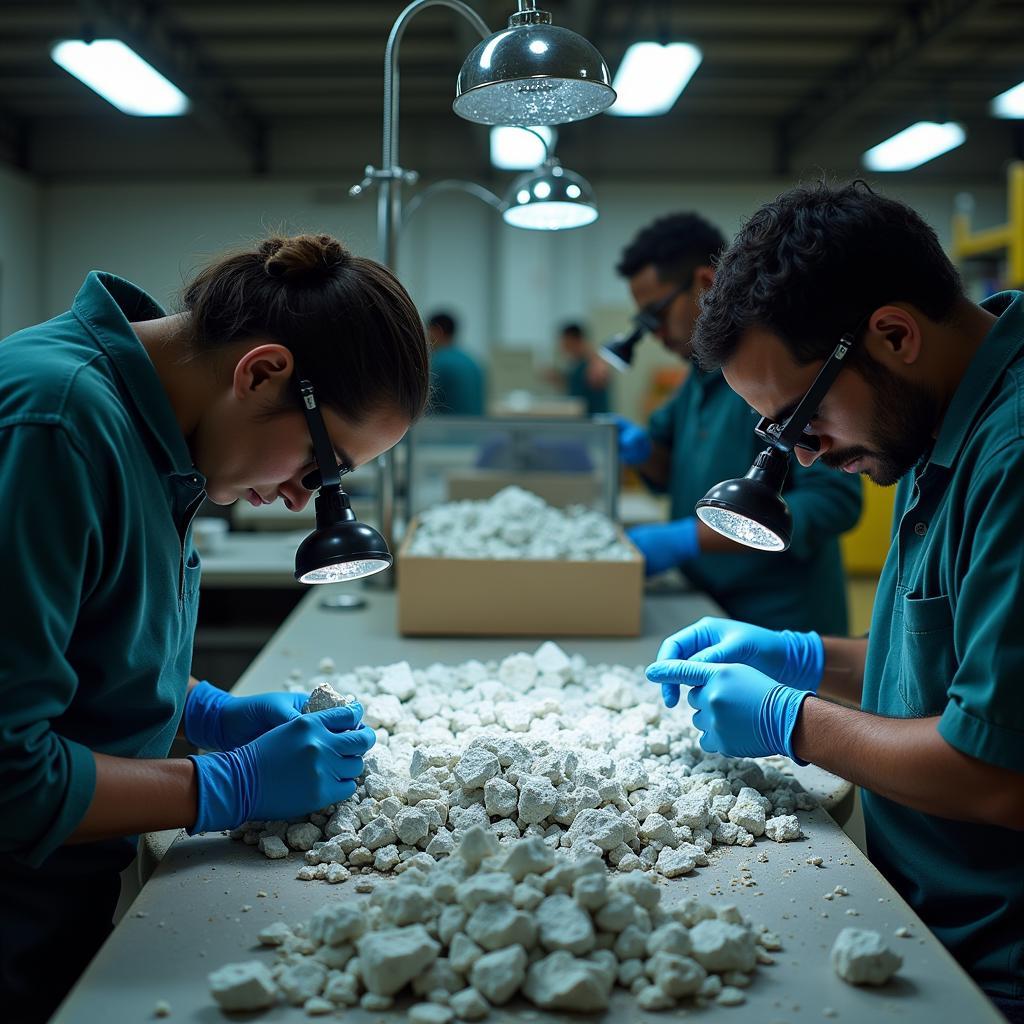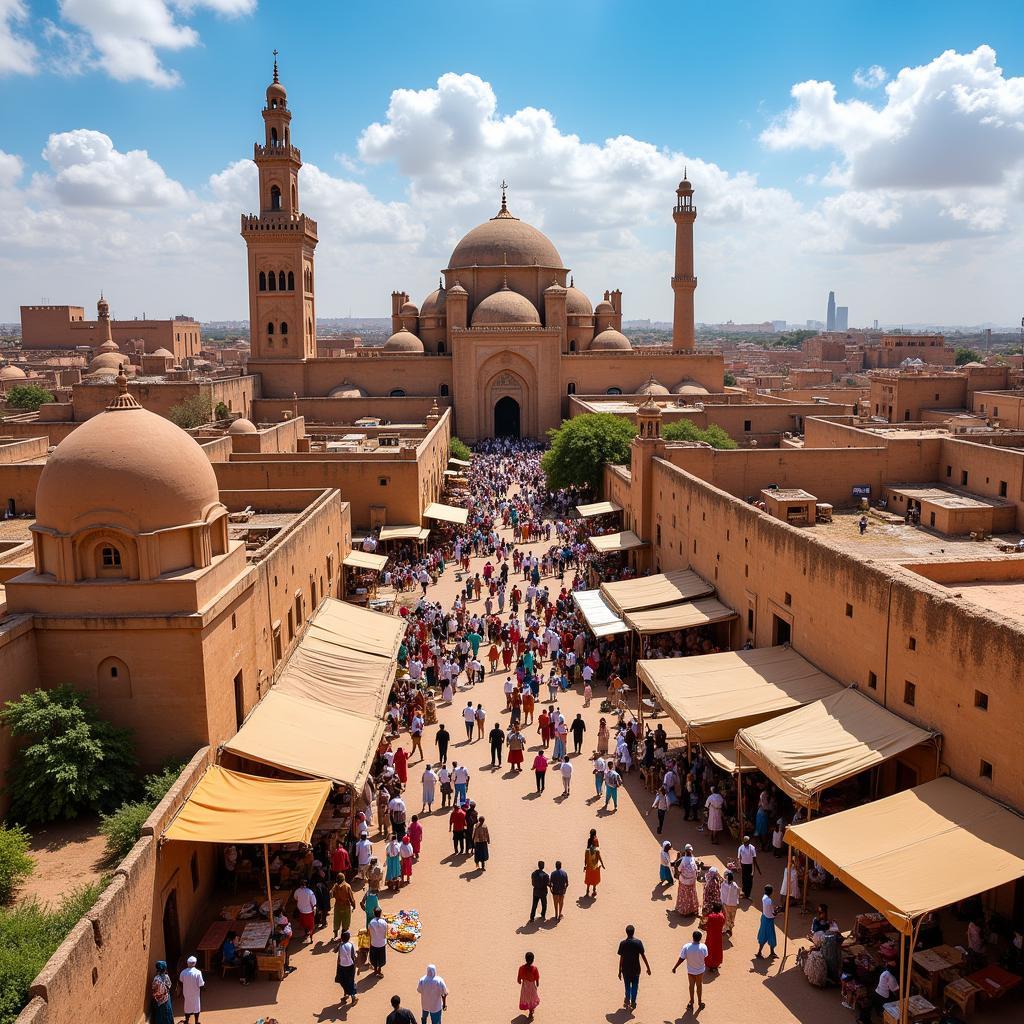Navigating the Sparkle: Understanding African Diamonds Companies
African diamonds companies are at the heart of a multifaceted industry, one that evokes images of dazzling jewels and significant economic activity. But beyond the sparkle, a complex reality exists, shaped by history, ethics, and global markets. This exploration delves into the world of African diamonds companies, shedding light on their operations, challenges, and the impact they have on the continent.
From Mine to Market: The Journey of an African Diamond
The journey of a diamond from the depths of an African mine to a piece of jewelry involves multiple stages, each with its own intricacies and players.
- Exploration and Mining: African diamonds companies invest heavily in exploration, utilizing advanced technology to locate kimberlite pipes, the geological formations where diamonds are found. Once discovered, mining operations commence, ranging from large-scale open-pit mines to smaller artisanal operations.
- Sorting and Valuation: After extraction, rough diamonds undergo a meticulous sorting process based on size, shape, color, and clarity. Expert valuators then assess each stone to determine its potential worth.
- Cutting and Polishing: The rough diamonds are cut and polished, transforming them into the brilliant gems we recognize. This intricate process is often done in specialized centers, sometimes located far from the mines themselves.
- Trading and Retail: Cut and polished diamonds enter the global market, traded through complex networks of diamond bourses and exchanges. Finally, they reach jewelry retailers, who present them to consumers in captivating settings.
Ethical Considerations: Navigating a Complex Landscape
The African diamond industry has faced scrutiny and criticism, particularly regarding ethical sourcing and its impact on local communities.
- Conflict Diamonds: The issue of “blood diamonds” or “conflict diamonds” gained international attention, highlighting the use of diamond revenues to fund armed conflicts. The Kimberley Process, an international certification scheme, was established to combat the trade of these diamonds.
- Environmental Impact: Mining activities can have significant environmental consequences, including habitat destruction, water pollution, and deforestation. Responsible African diamonds companies are increasingly adopting sustainable practices to mitigate their ecological footprint.
- Community Development: Many communities in diamond-rich areas face challenges like poverty, lack of infrastructure, and limited access to education and healthcare. Ethical companies prioritize community engagement, investing in social programs and infrastructure development.
 Diamond Sorting in Africa
Diamond Sorting in Africa
The Future of African Diamonds Companies
The global diamond industry is evolving, driven by changing consumer preferences, technological advancements, and a growing emphasis on sustainability and transparency.
- Demand for Ethical Sourcing: Consumers are increasingly concerned about the origin and ethical implications of their purchases. This has led to a rise in demand for certified diamonds and a greater focus on responsible sourcing practices by African diamonds companies.
- Technological Innovation: New technologies, such as blockchain, are being implemented to track diamonds throughout the supply chain, enhancing transparency and accountability.
- Value Addition in Africa: There’s a growing movement to add value to African diamonds within the continent itself. This includes expanding cutting and polishing centers in Africa, creating jobs and boosting local economies.
Conclusion
African diamonds companies operate within a complex ecosystem, balancing economic potential with ethical considerations and environmental responsibility. As the industry navigates the future, transparency, sustainability, and a commitment to community development will be crucial for building a brighter and more equitable future for all stakeholders.
FAQs about African Diamonds Companies
1. How can I be sure a diamond is ethically sourced? Look for diamonds accompanied by certificates from reputable organizations like the Kimberley Process Certification Scheme.
2. What are African diamonds companies doing to minimize environmental impact? Many companies are adopting sustainable practices, such as water recycling, land reclamation, and using renewable energy sources.
3. Are there opportunities for investment in African diamonds companies? Yes, investment opportunities exist in mining, cutting and polishing, and retail sectors. However, thorough due diligence is essential.
For any assistance with African diamonds, contact us at +255768904061, email kaka.mag@gmail.com or visit us in Mbarali DC Mawindi, Kangaga, Tanzania. Our customer service team is available 24/7.
